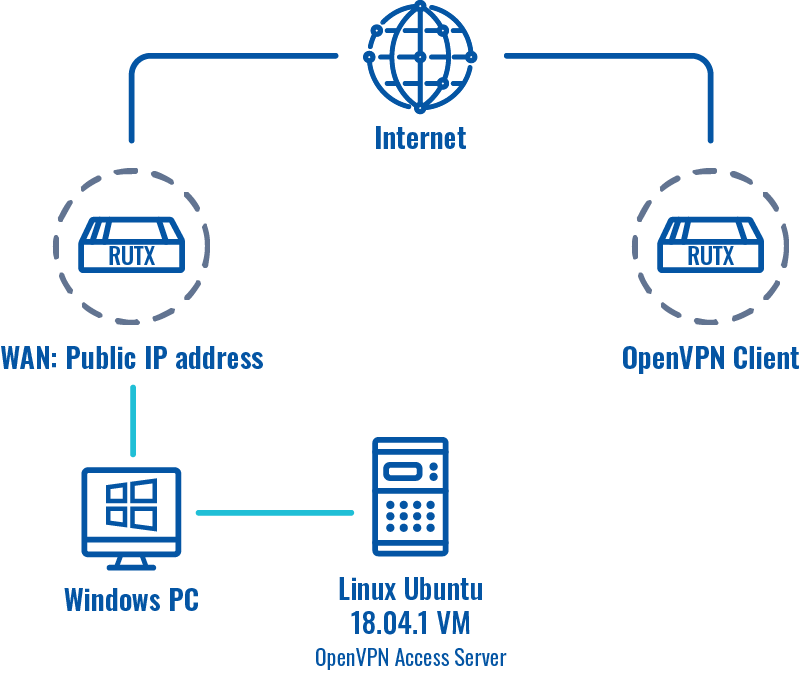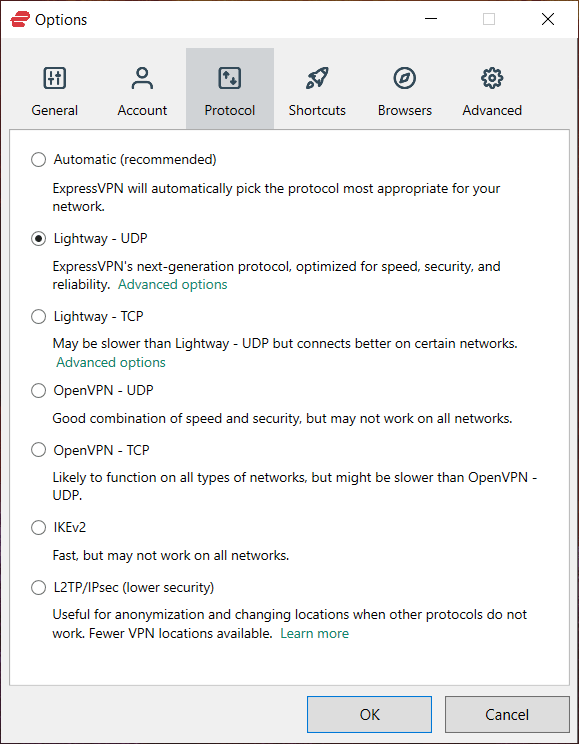Featured
Table of Contents
Openvpn(8): Secure Ip Tunnel Daemon - Linux Man Page
Still, it is worth discussing that SSTP is natively developed into Windows platforms, so it's much easier to establish than Open, VPN. Overall, both Open, VPN and SSTP are a good option, however Open, VPN is just more effective. In case you wish to discover more about SSTP, take a look at this short article.
It's safe to state that both Open, VPN and Soft, Ether are actually secure protocols. They're open-source, use military-grade ciphers like AES, utilize 256-bit encryption, and likewise use SSL 3. The primary difference in between them is the age Soft, Ether is much newer than Open, VPN.
In terms of speed, Soft, Ether fares better than Open, VPN. In truth, according to the research study from the University of Tsukuba (individuals behind Soft, Ether VPN, so not a 100% subjective source), the Soft, Ether protocol is expected to be 13 times faster than the Open, VPN protocol.
Openvpn Internals
However, you should understand that even if you utilize a VPN supplier who offers Soft, Ether connection, you'll still need to download extra software for it to run. With Open, VPN, that's optional. Like Open, VPN, Soft, Ether can likewise run its own server, but the Soft, Ether server can in fact run the Open, VPN procedure, along with other procedures like IPSec, L2TP/IPSec, SSTP, and Soft, Ether.

In the end, Soft, Ether is a strong Open, VPN option. If for whatever factor you can't utilize Open, VPN, you need to attempt Soft, Ether. If you 'd like to know more about it, follow this link. For starters, PPTP is significantly weaker than Open, VPN in regards to security. While Open, VPN can manage 256-bit file encryption secrets and ciphers like AES, PPTP can only utilize 128-bit keys through the MPPE cipher.
Though, you require to be more mindful with IPSec when configuring it, since a little mistake can ruin the protection it provides. Given that IPSec occupies kernel area (the area on the device reserved for the operating system), its security can be restricted by the method it's set up by the supplier.
Vpn Protocols Compared: Which Is The Best?
Still, you ought to know that IPSec might take longer to negotiate the tunnel than Open, VPN does. Interested in discovering more about IPSec? Take a look at this post. Open, VPN and IKEv2 are both protected protocols, but it's worth keeping in mind that Open, VPN utilizes TLS/SSL to protect data at the Transport level, while IKEv2 secures information at the IP level.
And while IKEv2 was established by Cisco together with Microsoft, that's not such a big concern given that there are open-source implementations of IKEv2. Open, VPN provides more assistance when it concerns cross-platform compatibility, however IKEv2 is generally a favorite of mobile users since it's natively incorporated into Black, Berry devices.
What does that suggest? That if, for example, you were to switch from a Wi, Fi connection to your data prepare connection on the go, IKEv2 might deal with that without dropping the connection. Besides that, you must understand that IKEv2 tends to be faster than Open, VPN, however it's also easier to block than the Open, VPN procedure.
Vpn Protocols: What They Are, How They Work
If you type "What is Open, VPN?" into a search engine the outcomes might lead you to believe it's strictly an open source task. Yes, it is that, however it's not just that. The more precise answer is that Open, VPN is the name of: An open source task we call Community Edition. Our tunneling procedure.
The Open, VPN Community Edition (CE) is an open source Virtual Private Network (VPN) project. It creates safe and secure connections over the Internet utilizing a custom security protocol that uses SSL/TLS. This community-supported OSS (Open Source Software) task, utilizing a GPL license, is supported by many Open, VPN Inc. developers and factors in addition to the prolonged Open, VPN community.

Open, VPN is an open source connection protocol utilized to facilitate a secure tunnel between two points in a network. In layperson's terms, this implies that it is a relied on innovation utilized by many virtual private networks, or VPNs, to make certain any information sent out over the web is encrypted and private.
How To Set Up And Configure An Openvpn Server On ...
It's not unusual to visit a VPN website and see them boasting about the reality that they provide Open, VPN as a feature. It's generally among a handful of VPN connection procedures you can use. In other words, it is perhaps the most safe VPN procedure in usage today (although the new Wireguard protocol is starting to challenge this declaration).
You're now 100% secure online with no risk of being hacked, right? Wellnot exactly. No single tool or encrypted connection to the web can ensure your security and privacy, and Open, VPN is no various. There are good reasons why it is considered one of the most protected connections, which we'll cover below.
Some of the links in this post are affiliate links, which suggests that at no extra expense to you, I may be compensated if you pick to use a few of the services listed. I just advise what I personally use and I hope that the complimentary details provides value to you! Before we dive deeper into responding to the question "what is Open, VPN" and how it works, let's take a step back to make sure we're clear on what a VPN protocol is.
Openvpn Vpn Protocol
If you leave your home to go out to consume, there are specific things you will think about: the safety of the path, the ideal mode of transport, what you require to take with you, etc. Similarly, when data travels through a channel, it follows specific rules. And there isn't just one set of guidelines to follow.
Perhaps you've heard of these procedures prior to. They generally go by an acronym such as: Point-to-point tunneling protocol Layer 2 tunneling protocol Web essential exchange version 2 Safe socket tunneling procedure, What is Open, VPN when compared to each of the protocols noted above? There's really one big distinction: It is open source.
Latest Posts
Best Mobile Vpn Services For Phones And Tablets - Youtube
The Best Vpn Services For Business (Including Small ...
Best Vpns Of 2023